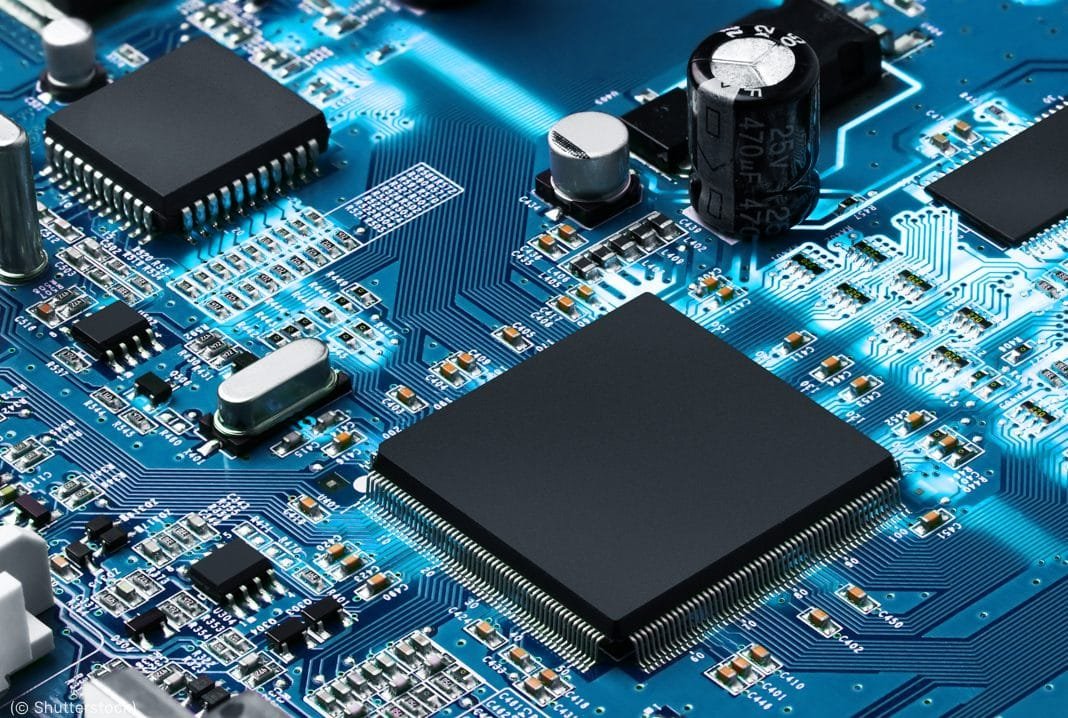
Students learning chip design during Taiwan's summer training program.
Taiwan cultivates young overseas chip talent with summer camps university courses. Taiwan Chip Training global dominance and its need More than 60% of the world’s semiconductor chips and more than 90% of the most advanced chips are made in Taiwan. Also, companies like Taiwan Semiconductor Manufacturing Company, which is the world’s largest and most advanced chip manufacturer, are a symbol of this dominance. These chips are the basis of modern life. Which are used in smartphones, computers, artificial intelligence systems, electric vehicles and defense technology And but maintaining this dominance is not an easy task.
Also, the semiconductor industry is extremely competitive and rapidly changing. And which requires constant innovation and a highly skilled workforce. Taiwan has a small population of its own and the lack of talent domestically is a growing challenge. And major countries like the US, Japan and the European Union are also promoting their respective semiconductor industries. Which is increasing the pressure on Taiwan. Therefore, it has become necessary for Taiwan to attract and train the best talent from abroad.
Taiwan Chip Training: Challenges and Future Outlook
Summer camps are an important part of Taiwan Chip Training talent-attraction strategy. These camps target high school and early undergraduate students, as well as those who are yet to choose their career path. The aim of these camps is to introduce them to the exciting world of the semiconductor industry and motivate them to pursue careers in the field. Key features include observational and theoretical knowledge where the camps teach students about the fundamentals of chips. semiconductor materials science, chip design and manufacturing processes in a simple and engaging way.
Practical experience, where students are often taken to state-of-the-art laboratories at universities, where they can perform small experiments and see real equipment. This helps them put theoretical knowledge into practice. Industry visits, where many of Taiwan’s top chip manufacturers such as TSMC and MediaTek allow students attending these camps to visit their manufacturing plants. The experience is also extremely motivating for students as they get to see how the world’s most advanced technology is made. The networking and mentoring that students get to interact with Taiwan’s leading professors and engineers who guide them about careers. The interaction with other students from around the world creates an international network.
These camps create a positive image of the semiconductor industry in students’ minds and motivate them to pursue higher education and careers in this field. University Courses and Scholarships Deep and Long-Term Investments Another and more important component of Taiwan’s talent-attraction strategy is specialized courses and scholarship programs at the university level. Taiwan’s top universities, such as the National Tsing Hua
Key Programs and Benefits of Taiwan Chip Training
Specialization courses at these universities focus on areas such as chip design, fabrication, packaging, and testing. The universities design the curriculum according to the needs of the industry, emphasizing theoretical knowledge as well as industrial projects and internships. The Taiwan government and companies like TSMC offer attractive scholarships and generous fellowships for foreign students. These scholarships cover tuition fees living expenses and monthly stipends. For example some scholarships can have monthly stipends of up to NT$30,000 which helps students to remain financially independent.
Also Gold Card and Work Permit which Taiwan has also introduced special visa programs like Gold Card and Talent Taiwan. Also these programs make the process of working and living in Taiwan easier for highly skilled professionals and students. These cards provide a work permit and residence permit together which allows them to stay in Taiwan for up to three years.
Direct job opportunities
Successful students of these programs often get direct job offers in leading semiconductor companies in Taiwan. And this is a huge incentive for foreign students because they know that a secure and high-paying career awaits them after training. Also, the growing cooperation between India and Taiwan, which is particularly important for India. And India is also trying its best to develop its semiconductor industry. Programs like the Government of India’s Production-Based Incentive (PLI) scheme for semiconductors and Chips to Startups (C2S) are important steps in this direction. Also complementary capabilities that India has a huge and talented software engineering workforce, while Taiwan has expertise in hardware manufacturing and fabrication. This creates an ideal complementary relationship between the two countries.
Joint Ventures and Investments
The Tata Group has partnered with Taiwan’s Powerchip Semiconductor Manufacturing Corporation (PSMC) to set up a semiconductor fabrication plant in Gujarat. And similarly the investment of Taiwanese companies in India is increasing. Also opportunities for Indian students that these programs of Taiwan provide a great chance for Indian students to learn the complex world of chip design and fabrication. And they can get world-class training in Taiwan and then return to India and contribute to the development of the country’s semiconductor ecosystem.
Also challenges and future direction There are some challenges in this strategy of Taiwan. And geopolitical risks that Taiwan’s political tension with China can be a concern for foreign talent. And global competition that the US, Japan and the European Union are also running their programs to attract foreign talent.
Cultural and linguistic barriers
That foreign students may have some difficulties in adjusting to Taiwanese culture and Mandarin language. But Taiwan is making efforts to reduce these challenges. And despite these challenges, this initiative of Taiwan is a visionary step. Also it not only maintains its technological superiority in the present. It also creates a global talent pipeline for the future. It proves that not just cutting-edge machines but the human minds that run those machines and develop new technology are just as important. And this is a model for countries like India to follow and join forces with Taiwan to strengthen their position in the global tech supply chain.





1 thought on “Taiwan Chip Training: Camps, Courses, and Scholarships”